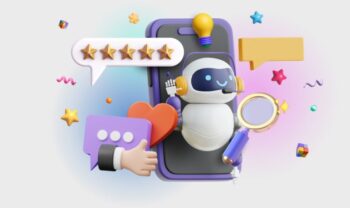How to create a WhatsApp marketing strategy from scratch
Step-by-step guide to develop an effective WhatsApp marketing strategy that generates qualified leads and increases your company's conversions.
Creating a WhatsApp marketing strategy from scratch may seem overwhelming, but with the right approach and the right tools, any company can develop a system that generates measurable and scalable results. The key is to understand that WhatsApp is not just another communication channel, but a platform that requires specific strategies to maximize its commercial potential.
An effective WhatsApp marketing strategy combines strategic planning, proper technical setup, relevant content creation, and ongoing optimization based on real data. Companies that follow a structured process report conversion rates 3-5 times higher than those that implement WhatsApp on an ad-hoc basis without a clear strategy.
This guide will take you step-by-step through the entire process of creating a WhatsApp marketing strategy, from defining objectives to implementation and optimization, providing practical frameworks and real-world examples that you can adapt to your specific industry and business model.
Step 1: Definition of objectives and KPIs
The first step to creating a successful WhatsApp marketing strategy is to establish clear, measurable objectives that are aligned with your overall business goals. Vague objectives such as "improve communication with customers" do not provide enough direction to create effective campaigns or metrics to evaluate success.
SMART objectives for WhatsApp marketing
Use the SMART (Specific, Measurable, Achievable, Relevant, Time-bound) framework to define objectives that effectively guide your strategy. For example, instead of "generate more leads", set "generate 200 qualified leads per month via WhatsApp with a minimum conversion rate of 15% in the next 6 months".
The most common and effective objectives for WhatsApp marketing include: generating qualified leads with specific quantity and quality targets, reducing the cost of customer acquisition compared to other channels, increasing the conversion rate of prospects to customers, improving engagement and retention of existing customers, and accelerating the sales cycle through direct communication.
Each objective should have specific KPIs associated with it that allow accurate measurement of progress. For lead generation: number of new contacts per week, response rate to initial messages, and lead quality measured by scoring or subsequent conversion. For conversion: percentage of conversations that result in sales, average value of transactions generated by WhatsApp, and average time from first contact to conversion.
Alignment with business objectives
Your WhatsApp marketing strategy should integrate seamlessly with your company's overall marketing and sales strategy. If your company is focused on rapid growth, WhatsApp should be optimized for massive lead generation and accelerated conversion. If the focus is on retention and customer lifetime value, WhatsApp should be used for long-term nurturing and upselling.
Consider the complete customer journey and define how WhatsApp will complement other marketing channels. WhatsApp can function as a final conversion channel for leads generated on social networks, as a nurturing channel for email marketing leads, or as the main lead generation channel through platform-specific strategies.
Step 2: In-depth target audience analysis
Successful WhatsApp marketing depends critically on deeply understanding your target audience: their communication preferences, behaviors on WhatsApp, specific problems they face, and how they make purchasing decisions. This deep understanding allows you to create messages that genuinely resonate and generate high engagement.
WhatsApp behavioral research
Research specifically how your target audience uses WhatsApp: times of peak activity, types of content they share, frequency of use, and attitudes towards commercial communication via the platform. This information is crucial because behavior on WhatsApp can differ significantly from behavior on other digital platforms.
Conducts direct surveys of existing customers about their WhatsApp communication preferences: preferred frequency of messages, types of content they find valuable, preferred times to receive marketing communication, and previous experiences with companies using WhatsApp for marketing.
Analyze existing conversations if you already use WhatsApp for customer service. Identify patterns in frequently asked questions, common objections, types of information customers request, and moments in the customer journey where they seek more information or support.
Creation of specific buyer personas for WhatsApp
Develop buyer personas specifically for your WhatsApp strategy that go beyond basic demographics and include specific communication behaviors, content preferences, and triggers that motivate them to interact with businesses via WhatsApp.
For each persona, define: specific problems that WhatsApp can solve better than other channels, types of content they prefer to receive via WhatsApp (text, images, videos, audios), preferred level of formality in communication, optimal frequency of contact, and specific moments in their buyer journey where WhatsApp can add the most value.
It includes information about their context of WhatsApp use: whether they use it primarily for personal communication or also for work, whether they are comfortable receiving business communication over the platform, and what kind of value they expect to receive in exchange for providing their WhatsApp number.
Step 3: Technical configuration and tools
Proper technical setup is critical to the success of your WhatsApp marketing strategy. A professional setup not only projects credibility, but also optimizes functionality to maximize conversions and facilitate efficient management of multiple simultaneous conversations.
Selection between WhatsApp Business and WhatsApp Business API
The decision between WhatsApp Business (free application) and WhatsApp Business API (enterprise solution) depends on the volume of messages, level of automation required, and integration needs with other systems. WhatsApp Business is suitable for small businesses with less than 1,000 contacts and basic automation needs.
WhatsApp Business API, accessible through platforms such as Aurora Inbox, is necessary for companies that require: advanced automation with complex flows, integration with CRM and marketing systems, handling high volumes of messages (more than 1,000 per month), multiple agents handling conversations simultaneously, and detailed performance analytics.
Aurora Inbox significantly facilitates the implementation of WhatsApp Business API, providing intuitive interface, advanced automation, integration with popular marketing and CRM tools, and specialized support for campaign optimization.
Optimization of the company profile
Your WhatsApp Business profile is the first impression prospects will have of your company and should be meticulously optimized to build trust and communicate value immediately. Use your business logo as your profile picture, making sure it is clearly visible in a small, circular format.
The business name should be consistent with your brand on other channels and easily recognizable. The description should include your clear value proposition, keywords relevant to your industry, and specific call-to-action that indicates what contacts can expect when interacting with you.
Complete all available contact information: physical address if you have a location, specific opening hours, website, and contact email. This complete information not only generates trust, but also improves visibility in searches within WhatsApp.
Step 4: Content strategy development
Content is at the heart of your WhatsApp marketing strategy. Unlike other channels where content can be more promotional, WhatsApp requires content that provides genuine value and encourages natural conversation, leveraging the personal and intimate nature of the platform.
Effective content types for WhatsApp
The most effective content on WhatsApp combines educational value with conversational elements that invite interaction. Step-by-step tutorials with images or short videos work exceptionally well because they leverage WhatsApp's multimedia capabilities and provide immediate value that users can implement.
Case studies and testimonials in conversational story format generate high credibility because they feel like personal recommendations from friends. Present these cases as narratives: "I'll tell you how we helped [similar company] solve [specific problem]..." followed by specific details and measurable results.
Free tools and resources (templates, checklists, calculators) provide tangible value that justifies sharing the WhatsApp number. These resources should be specifically useful to your target audience and directly related to the problems your product or service solves.
Content and frequency calendar
Develop a WhatsApp-specific content calendar that considers the more personal nature of the platform. Optimal frequency is typically less than email marketing: 2-3 messages per week for educational content, with promotional messages limited to a maximum of one per week.
Plan content that builds progressively: an educational series where each message provides deeper information on a topic, culminating in a relevant offer. This approach keeps engagement high while gradually educating about your solution.
Consider specific times based on your audience's behavior. For B2B audiences, business hours (9 AM - 6 PM) typically work best. For B2C audiences, evening hours (6 PM - 9 PM) may generate more engagement.
Step 5: Implementation and measurement
Successful implementation of your WhatsApp marketing strategy requires a systematic approach that combines gradual launch, continuous testing, and optimization based on real data. Start with a small group of contacts to test and refine your approach before scaling up.
Pilot launch and optimization
Implement your strategy initially with 50-100 highly qualified contacts to test messages, timing, and conversation flows. This pilot group will allow you to identify what works well and what needs tweaking before investing in mass scaling.
Meticulously document the results of the pilot: response rates by message type, times with the highest engagement, common objections that arise, and types of content that generate the most conversations. This information will be invaluable for optimizing your strategy before the full launch.
Use Aurora Inbox to automate the tracking of key metrics and generate reports that allow you to make decisions based on real data rather than intuition. The platform provides detailed analytics on message performance, audience behavior, and campaign ROI.
Scaling and growth
Once you have optimized your approach with the pilot group, scale gradually by adding more contacts and expanding your campaigns. Maintain the quality of personalization while increasing volume by using intelligent automation that adapts to the individual behavior of each contact.
Implement continuous feedback systems that allow you to quickly identify when something is not working and adjust accordingly. WhatsApp provides immediate feedback through response and engagement rates, allowing for faster optimization than other marketing channels.
Consider progressive integration with other marketing channels to create an omnichannel ecosystem where WhatsApp functions as the final conversion channel that capitalizes on the awareness and consideration work done in other channels.
Successful WhatsApp marketing requires patience, continuous testing, and a focus on providing genuine value before seeking conversions. Companies that follow this structured approach typically see significant results in 3-6 months, with continuous improvements as they refine their strategy based on real data and customer feedback.



